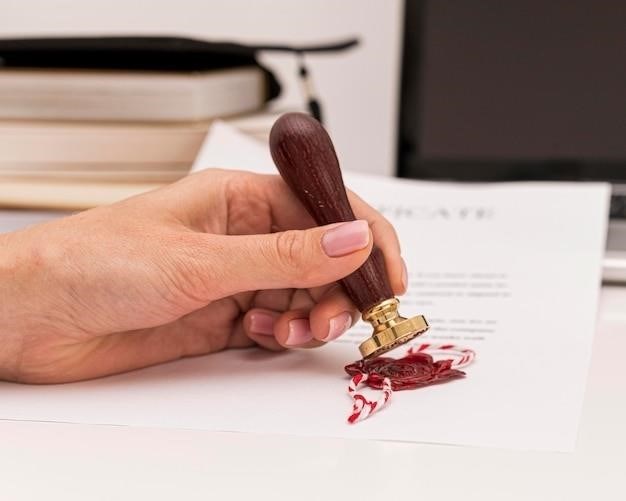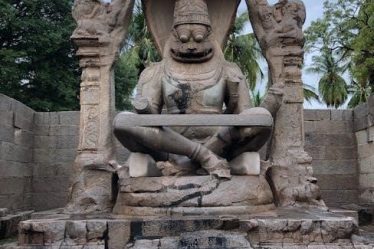
Hawaii Power of Attorney Forms⁚ A Comprehensive Guide
This guide provides a comprehensive overview of Hawaii Power of Attorney forms, outlining the various types, their purposes, and the legal requirements for their execution. We delve into the specifics of each form, including Durable (Financial) Power of Attorney, General (Financial) Power of Attorney, Limited (Special) Power of Attorney, Advance Directive (Medical POA & Living Will), Minor Child Power of Attorney, Motor Vehicle Power of Attorney, Real Estate Power of Attorney, Revocation of Power of Attorney, and Tax Power of Attorney.
What is a Hawaii Power of Attorney Form?
A Hawaii Power of Attorney (POA) is a legal document that grants an appointed individual (the agent or attorney-in-fact) the authority to make decisions and perform actions on behalf of another person (the principal). This arrangement empowers the agent to handle various matters, such as financial affairs, property transactions, health care decisions, and even legal proceedings, on the principal’s behalf. The POA serves as a legal authorization, allowing the agent to act with the same legal standing as the principal.
The purpose of a Hawaii POA is to provide a legal framework for managing a principal’s affairs, ensuring continuity and control even in situations where the principal is unable to make decisions for themselves. It’s a valuable tool for estate planning, ensuring that financial and personal matters are addressed according to the principal’s wishes, even during times of incapacitation or absence.
Types of Hawaii Power of Attorney Forms
Hawaii offers a variety of Power of Attorney forms, each designed to address specific needs and situations. These forms are categorized based on the scope of authority granted to the agent and the duration of their power. Here’s a breakdown of the common types⁚
- Durable Power of Attorney⁚ Grants broad authority to an agent to handle financial matters, property, and assets on behalf of the principal. This type of POA remains effective even if the principal becomes incapacitated.
- General Power of Attorney⁚ Similar to a durable POA, but it typically terminates if the principal becomes incapacitated.
- Limited Power of Attorney (Special Power of Attorney)⁚ Confers specific authority to an agent for a limited purpose or duration. This form is ideal for managing specific transactions or situations.
- Advance Directive (Medical POA & Living Will)⁚ Allows the principal to make decisions about their medical care in advance, particularly if they become unable to express their wishes.
Other specialized POA forms are available for specific purposes, such as those related to minor children, motor vehicles, real estate transactions, and tax matters. It is important to select the appropriate form based on individual circumstances and the desired scope of authority.
Durable (Financial) Power of Attorney
The Hawaii Durable (Financial) Power of Attorney is a crucial document for those who wish to appoint an agent to manage their financial affairs, even if they become incapacitated. This type of POA is referred to as “durable” because it remains effective even if the principal loses the ability to make decisions for themselves. It allows the designated agent to handle a wide range of financial matters, including⁚
- Managing bank accounts⁚ Depositing and withdrawing funds, paying bills, and accessing financial records.
- Handling investments⁚ Buying, selling, and managing stocks, bonds, and other investments.
- Managing real estate⁚ Buying, selling, renting, or leasing property.
- Paying taxes⁚ Filing tax returns and making tax payments.
It is important to note that a Durable Power of Attorney does not authorize the agent to make healthcare decisions. For medical decision-making, a separate Advance Directive (Medical POA & Living Will) is required.
General (Financial) Power of Attorney
A General (Financial) Power of Attorney in Hawaii grants authority to an agent to handle specific financial matters on the principal’s behalf. Unlike a Durable Power of Attorney, this form becomes void if the principal becomes incapacitated. This means that the agent’s authority terminates if the principal loses the ability to make decisions for themselves.
The General Power of Attorney can be used for a variety of purposes, such as⁚
- Managing bank accounts⁚ Depositing and withdrawing funds, paying bills, and accessing financial records.
- Handling investments⁚ Buying, selling, and managing stocks, bonds, and other investments.
- Managing real estate⁚ Buying, selling, renting, or leasing property.
- Paying taxes⁚ Filing tax returns and making tax payments.
It’s important to remember that a General Power of Attorney is only effective while the principal remains mentally competent. If the principal loses their mental capacity, the agent’s authority will automatically cease.
Limited (Special) Power of Attorney

A Limited (Special) Power of Attorney, also known as a Special Power of Attorney, in Hawaii allows the principal to grant specific and limited authority to an agent. This type of power of attorney is ideal for situations where the principal only wants the agent to act on their behalf for a specific purpose or for a limited period of time.
Examples of situations where a Limited Power of Attorney might be used include⁚
- Selling a specific piece of property⁚ The agent is only authorized to sell a particular property and not any other assets.
- Managing a specific account⁚ The agent can only access and manage one specific bank account, not any other accounts.
- Making a single transaction⁚ The agent is authorized to complete a single transaction, such as buying a car or signing a lease.
By specifying the exact scope of the agent’s authority, the principal can ensure that the agent only acts within the boundaries of their designated powers. This helps to protect the principal’s interests and prevents the agent from exceeding their authority.
Advance Directive (Medical POA & Living Will)
An Advance Directive in Hawaii serves as a crucial legal document that allows individuals to plan for their healthcare in the event they are unable to make decisions for themselves due to illness or incapacity. It encompasses two essential components⁚ a Medical Power of Attorney (POA) and a Living Will.
The Medical POA designates a trusted individual, known as the healthcare agent, to make medical decisions on behalf of the principal when they are unable to do so. This agent can authorize or refuse specific medical treatments, including life-sustaining measures, based on the principal’s expressed wishes and values.
The Living Will, also known as a directive to physicians, outlines the principal’s preferences regarding end-of-life care. It allows individuals to express their wishes regarding life-sustaining treatments, such as artificial feeding and ventilation, in various scenarios, ensuring their wishes are respected even when they are unable to communicate them.
Minor Child Power of Attorney
A Minor Child Power of Attorney in Hawaii is a legal document that empowers a non-parent to make decisions on behalf of a minor child. This type of POA is typically used when a child’s parents are unavailable or unable to make decisions regarding their child’s welfare, such as medical care, education, or other essential matters.
The POA grants the designated individual, known as the attorney-in-fact, the authority to act on the child’s behalf within the specific scope outlined in the document. For instance, the POA may authorize the attorney-in-fact to consent to medical treatments, enroll the child in school, or handle financial matters related to the child’s care.
It is crucial to note that a Minor Child Power of Attorney does not grant the attorney-in-fact legal custody of the child. It simply empowers them to make certain decisions on the child’s behalf, within the boundaries of the specified powers. It is essential to consult with an attorney to ensure the POA is drafted appropriately and complies with Hawaii’s legal requirements.
Motor Vehicle Power of Attorney
A Motor Vehicle Power of Attorney in Hawaii is a legal document that authorizes an individual, known as the attorney-in-fact, to act on behalf of the principal in matters related to a specific vehicle. This type of POA is typically used when the principal is unable to personally handle vehicle-related transactions, such as selling, buying, or registering a vehicle.
The POA grants the attorney-in-fact the specific powers outlined in the document. For example, the POA may authorize the attorney-in-fact to sell the vehicle, transfer ownership, register the vehicle, or obtain a title. It is important to note that the scope of the POA is limited to the specific vehicle(s) named in the document.
In Hawaii, the Motor Vehicle Power of Attorney form, designated as DMVL-596, is available for download and completion. The form must be properly executed, including notarization, to be legally valid. It’s advisable to consult with an attorney to ensure the POA is drafted accurately and meets all legal requirements in Hawaii.

Real Estate Power of Attorney
A Real Estate Power of Attorney in Hawaii is a legal document that grants an individual, designated as the attorney-in-fact, the authority to act on behalf of the principal in matters related to real property. This POA is typically used when the principal is unable to personally handle real estate transactions due to reasons such as travel, illness, or disability.
The POA empowers the attorney-in-fact to perform specific actions related to the principal’s real estate, such as buying, selling, leasing, or managing properties. The document should clearly outline the specific powers granted, ensuring that the attorney-in-fact is authorized to act within those parameters.
In Hawaii, a Real Estate Power of Attorney form is typically drafted according to the specific needs of the principal and the real estate transaction involved. It’s crucial to consult with an attorney to ensure the POA is properly drafted and meets all legal requirements in Hawaii, including proper execution and notarization.
Revocation of Power of Attorney
A Revocation of Power of Attorney is a legal document used in Hawaii to terminate the authority granted to an attorney-in-fact under a previously executed Power of Attorney. This document serves to revoke the agent’s power to act on behalf of the principal, effectively nullifying the original POA.
Revocation can be necessary for various reasons, including a change in the principal’s wishes, a loss of trust in the agent, or the principal’s recovery from a temporary incapacity that led to the POA’s creation. The revocation must be in writing and signed by the principal, and it’s recommended to be notarized for added legal protection.
In Hawaii, a Revocation of Power of Attorney should be drafted with care to ensure it clearly identifies the specific POA being revoked, the names of the principal and agent, and the effective date of revocation. Filing the revocation with relevant parties, such as financial institutions or government agencies, is essential to inform them of the terminated authority.
Tax Power of Attorney
A Tax Power of Attorney in Hawaii allows an individual, known as the taxpayer, to authorize another person, the representative, to handle their tax-related matters with the Hawaii Department of Taxation. This document grants the representative the power to act on the taxpayer’s behalf, such as filing tax returns, requesting information, and making payments.
In Hawaii, the official form for designating a tax representative is Form N-848, which is readily available for download on the Department of Taxation website. The form requires both the taxpayer and their representative to sign it, and it must be submitted to the department along with any relevant tax documents.
A Tax Power of Attorney is particularly useful for individuals who are unable to handle their tax matters themselves due to illness, travel, or other reasons. It can also be helpful for business owners who need someone to manage their company’s tax obligations.


